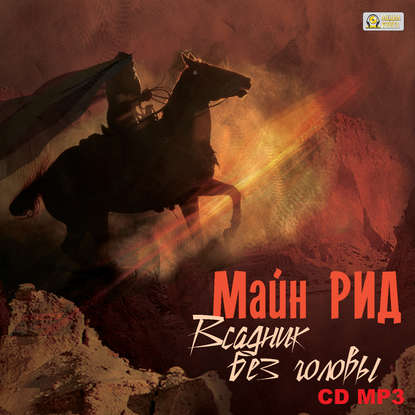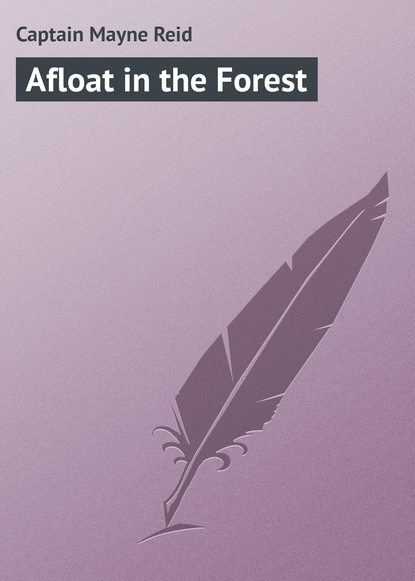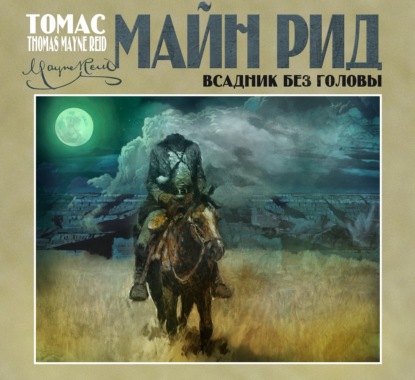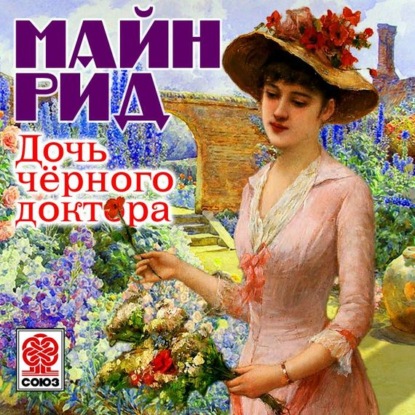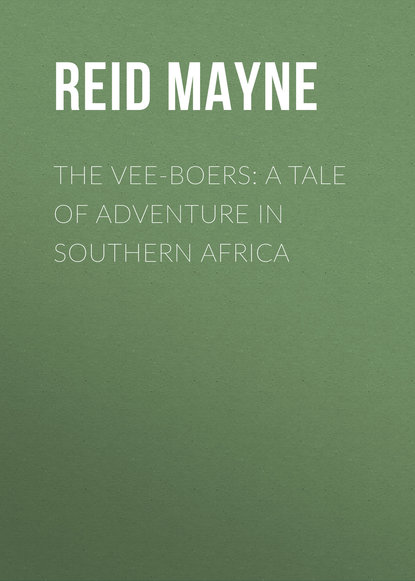
Полная версия
The Vee-Boers: A Tale of Adventure in Southern Africa
The sheep are not there – not one of them. If looked for, they would be found – or rather their carcases – lying here and there along the line of yesterday’s trek; though, like as not, even the carcases would not be there, only the skins and bones; the flesh long since devoured by jackals, hyenas, and vultures.
In addition to wood, water, and grass, the camp-ground enjoys another convenience – in tropical Africa, nearly as essential as any of the three – shade. The mowana, 18, with its wide extending arms, and thickly set foliage, casts shadow over a circle of full fifty yards diameter, and underneath it there is room for everybody and everything.
The hour is ten o’clock in the morning; the travellers having arrived there in the afternoon of the preceding day. That they have not been idle since can be told by the work done. The laager-fence itself must have cost time and labour in its construction; while inside it are other evidences of industry. Much of the lading of the waggons is out, and on the ground, to be re-packed and re-arranged for further transport; while upon lines, stretched from tree to tree, hang all sorts of lingerie in the process of drying; proof that the washerwomen of the party had been up and stirring betimes.
And this work, with many other kinds, is still in progress; not only the women and girls, but the men and boys being actively engaged one way or another. Some of the older hands are repairing saddles, bridles, and harness-gear; others mend vel-schoenen 19; and still others look to the waggon-wheels, whose spokes and fellies, contracted by the drought, have been for some time threatening to part company. A lapping of wet raw hide, when it dries, will bind, and hold them together, firm as any clasp or screw of iron; this every South African traveller knows, and none better than a Vee-Boer.
Some of the women are occupied with their needles, which they ply with a skill not excelled by the most accomplished Parisian coturière; others milk the cows, led inside the laager for this purpose, while yet others are engaged in preparing the morgen-maal 20. It is being cooked on a kitchen-range, of quaint, primitive kind, such as may be met with only in Southern Africa. Hand of man has had nought to do with its manufacture, nor has there been any iron employed in it. Instead, it is an earthen structure; part mud, and part a gummy, glutinous substance secreted by insects, these having been its constructors. For the cooking-stove in question, is neither more nor less than an ant-hill, the home of a hive of termites 21of which there are several near. For some reason or other abandoned by its builders, it has been easily transformed to the use now made of it. On the night before, a number of cavities had been hollowed out around its base, fires kindled therein, and tires of shelves cut into the sides above them. Now, at ten am, the whole mass is at furnace heat, kettles boiling, stewpots simmering, and frying-pans hissing – in short, a complete batterie de cuisine in stridulous activity.
One unaccustomed to Transvaalian cookery might not greatly relish the viands in preparation; the meat part of them being mostly antelope flesh, fried in lard rendered from the tails of the fat-tailed sheep. None of it, however, came from those lately poisoned by the tulp, the travellers having previously laid in a supply, sufficient to last them to the end of their contemplated journey. For the lard in question is a staple commodity among the Dutch colonists of South Africa, kept in stock not only in their houses, but carried with them in their waggons when on trek. It is often used as a substitute for butter, and however distasteful to the palate of strangers, by the Boers it is regarded of first goût.
And now the savoury steam, exhaling from the pots and pans, fills the air with a fragrance more agreeable to the nostrils of the travellers than all the odours of Araby. So appetising is it, that all are madly impatient to partake of the morgen-maal.
This they do as soon as culinary operations are ended, coffee being an accompaniment to the more substantial dishes. After which the white men of the party indulge in a “soupie” of brandeywyn 22 winding up with a smoke; when all return to the tasks of the day. The children alone remain idle at play; some of the most courageous boys climbing up among the branches of the mowana, for the tempting fruit seen there. But the work of none is now of long continuance, only up till about twelve noon. Then it is necessarily suspended on account of the sultry heat, and all congregate under the mowana; the animals seeking shade beneath other umbrageous trees that stand by the side of their pasture ground.
Chapter Six.
A Rush of Buffaloes
It had come to be late in the afternoon, with a cooler atmosphere as the sun sank towards the horizon; but as most of the necessary jobs had been done in the morning, there was no resumption of work. Milking the cows, and feeding the calves, were the only tasks that now occupied the people of the laager, and these were entrusted to the Caffre attendants, well up in all matters relating to cow-kine and the dairy. Indeed, all the different tribes of this race, whether of Kaffirland proper, or the more northerly Zululand, look upon cattle as their chief source of wealth and subsistence.
Some of the women had set about the evening meal; when the younger men – nearly all sons, nephews, or other relatives of Van Dorn, Blom, and Rynwald – bethought them of spending an hour or so in shooting at a target, the sport of their preference, and encouraged by the elders. For by a people, part of whose food is obtained through the chase, and whose every-day life exposes them to its perils, being a good marksman is naturally held in high estimation.
Getting hold of their guns, therefore, the young Boers proceeded to the open veldt; and, after making up a match, commenced practice, the shell of an ostrich’s egg serving them for mark. This most of them could hit at 100 paces distance, four times out of six; and at 200 would not often miss it. Their long roers carried still farther, and an ordinary-sized antelope, even at 300, would have stood but little chance with them.
And now there was keen competition between these young marksmen, with a desire to excel, quite as much as among our crack-shots at Wimbledon. But they had not been long thus occupied, when their ears were saluted by a sound, admonishing them they might soon expect something to shoot at very different from an egg-shell. From afar, over the plain, came a noise like the rumbling of distant thunder, growing louder as they listened; at length to be recognised as the quick trample of buffaloes – a herd of them “on the run.” And that they were running in the direction of the laager could be told by the continually increasing sound. But soon there was no doubt of it; the animals themselves being seen, as they came crashing through a tract of bush on the farther side of the veldt, and bounding on over the open. An immense herd it was, blackening the green sward to the width of a hundred yards, and thick as sheep in a flock.
To the amateur British Nimrod in South Africa the sight of such big game, and in such plenty, would have imparted pleasure instead of begetting fear. And in the same light the young Boers would have regarded it, but for a circumstance that presented the spectacle in an altogether different aspect – one of danger. Alongside the great tree, under which their camp was placed, ran an open list leading down to the river, and, in all probability, the buffaloes would pass that way, making for the water. Indeed, they were heading straight for it; though drink might not be their object. Their maddened bounds and loud bellowing, as they came thundering on, seemed to betoken some other cause of excitement than thirst. However that might be, it soon became evident they meant to pass under the mowana, right through the laager. The enclosing fence of thorns would be no obstruction to them, any more than if it were of reeds or straw; and woe to all who should chance to be in their way! Tornado or cyclone would not be more destructive.
By this every one in the camp, and every living creature around it, had become aware of the threatening peril. Men shouted, women shrieked, the children screaming in chorus; while the horses neighed affrightedly, dancing about in their hopples; the cattle lowed and routed; and the dogs ran to and fro, some barking, some angrily growling. In short, the place lately so tranquil, most of its occupants indulging in the dolce-far-niente, was suddenly transformed into what seemed a Pandemonium.
Meanwhile, the young marksmen out in the open had not been idle. If taken by surprise, they felt no dismay, nor aught rendering them powerless to act. Instead, soon as convinced that the buffaloes were bent for passing under the mowana, one and all made a rush towards their horses, calling out to those in the camp to bring saddles and bridles. They knew that the likeliest way to stem the advancing torrent was to present front to it on horseback; and there might be time, as the foremost of the buffaloes were still nearly a mile off. It would be quick work; but luckily the hoppled horses were easily and quickly caught, and in a trice bridled and saddled. Then, each mounting his own – the whole party numbering nigh a dozen – they galloped out upon the veldt to meet the advancing enemy. Scarce another minute elapsed before their horses’ heads were within less than 300 yards from those of the foremost buffaloes; there for an instant to be drawn up, though there was no stoppage on the part of the bovines. And had the young Boers stayed silent when they halted, in all likelihood both they and their horses would in another minute have been run over, and trampled to death. But they did not stay silent; instead, all together raised gun to shoulder, and taking good aim, delivered a volley right in the faces of the black brutes that threatened them. There was a responsive crashing from some of their bullets, that only struck the great buttressed horns; but half-a-dozen of them told better, and a like number of the buffaloes, headmost of the herd, were seen to tumble over on the sward, dead as door-nails; the impetus of their rush shooting them their full body’s length in advance of the rest.
The reports of the roers, their blaze and smoke – sounds and sights, in all probability, new to the wild animals – had an effect upon them instantaneous and deterrent. Whatever had been their worry behind, whether pursuit by lions or otherwise, it was now less a thing of fear than that they saw in front. So one and all came to a stop, quickly as they could gather up their legs. It took time, though, the masses behind forcing the front rank forward, beyond where it was inclined to go.
Perhaps all might have resumed their onward career and the dreaded catastrophe, occurred all the same, had not the young Boers taken other precautions to prevent it. In this they succeeded, by a continuous shouting, yelling at the highest pitch of voice, while they hurriedly rammed powder and ball down the barrels of their roers; and when these were reloaded poured a second volley into the hesitating herd. It brought another half-dozen of the buffaloes to grass; but that was a thing they little cared about. Far more would they have been pleased to see the animals turn tail, and make away from them.
And with this very sight were they gratified in an instant after. The first fusillade, with its fire and smoke, to say nothing of the fatal effects, had caused fear among the wild bovines; the second brought dismay, and, not desiring to encounter a third, the headmost of the herd swung round, followed by the rearmost, all going off in a direction that would carry them wide of the mowana.
“Praise be to God, our people are saved!” was the thought of the young Boers, more than one of them giving vocal expression to it.
Chapter Seven.
A Buffalo Chase
As the danger seemed averted, and there seemed no likelihood of its recurrence, most of the young Boers drew up around the fallen buffaloes, and dismounted to gralloch and skin them. Three, however, who had become excited beyond restraint, kept to their saddles, and went after the retreating herd. This trio of implacable pursuers were Piet Van Dorn, the eldest son of Jari; Andries Blom, a nephew of Hans; a son of Klass Rynwald; all three nearly of an age. But between the two first there had long been rivalry as to which was the more accomplished hunter, with rivalry of another sort presently to be spoken of.
Their horses being of lighter hoof than the heavy bovines, they were not long in again coming up with the latter; each, soon as within shot-range, singling out one, and delivering his fire. But only two of the buffaloes fell; the third, which was that aimed at by Van Dorn, though hit, keeping its feet and running on. Not with the herd, however, for the sting of the shot seemed to drive it crazy; and, separating from the rest, it struck to the left and went scouring off alone.
But it was not to escape thus, at least unpursued. Rather than it should, Piet Van Dorn would have ridden his horse to death, and almost to dying himself. His hunter pride was touched, and something more. What would Katharine Rynwald say – what think – on hearing that he had fired and failed to bring down the thing fired at – he alone of all the three? And she would be sure to hear of it; ay, be told of it within the hour. The cynical and satisfied smile on Andries Blom’s face, as he saw the wounded buffalo bound away, seemingly but little hurt, was sure promise that the fair Katharine would come to know all about it. So without waiting to say a word to the other two, Van Dorn reined round to the left, and pressed his horse to top speed, reloading his gun as he galloped.
Perhaps young Rynwald would have followed to lend him a helping hand, but for Blom. The latter did not want that buffalo killed; instead, he hoped with all his heart that it might still escape. And to give it a better chance, he cried out to the brother of Katharine, who bore his father’s name —
“Klass! let us two follow the drove, and bring down another couple, so that the camp people may have plenty of meat – dogs and all. We mayn’t have such a chance for months.”
Thus appealed to, Klass thought no more about helping Van Dorn, but dashed on after the other, who had already started in pursuit of the herd. They did not again come up with it, however; but that signified little to Andries Blom.
Meanwhile, Piet Van Dorn, who inherited all his father’s hunting instincts, with much of his prowess, was doing his best to overtake the wounded bull. For a bull it was, and of immense size; apparently the patriarch of the herd it had so unaccountably forsaken. This had caused the young hunter some surprise; and he was also surprised, as well as chagrined, at his first shot not having brought the bull down. For he had aimed at a vital part, with excellent opportunity, and could not account for his having missed. True, it was not altogether a miss, though not much better, the buffalo seeming but little hurt as it careered on over the veldt, tail high in air. Mounted on a strong, swift horse, however, Van Dorn at length got again within range of it; and once more raising his roer, delivered what he believed would be its death shot. Only to see, with chagrin greater than ever, that though he had made a hit, it was not a kill. Indeed, so far from the bull being further disabled, he but seemed to gather fresh strength, and with a loud bellow and angry toss of the head, continued on at a heightened speed.
But the pursuit was continued too; for with Piet Van Dorn it was now do or die. Not for worlds would he have allowed that buffalo to escape him; and, once more appealing to the speed of his horse, as he rammed another cartridge down the barrel of his gun, he followed at his fastest. It was a tail-on-end chase, prolonged for nearly another league, before the pursuer thought himself near enough to send another shot at the pursued. He did so at length, hearing his bullet hit with a dull thud, as it buried itself in the flesh of the great bovine. Still the animal fell not, neither staggered, though it made no attempt to run on. The third shot produced an effect in it quite different from the two former, and, instead of further retreat, it stopped short, wheeled round, angrily shook its horned head, tore up the turf with its hoofs, then, with a loud bellow, charged back on its relentless pursuer. Having perfect control of his horse, and trust in the animal’s speed, the young hunter could have easily avoided the onset by galloping wide out of the way. And he was in the act of doing so, had half reined round, when he felt the horse sink beneath him, and himself going a “cropper” over neck and head.
There was no mystery about the cause, which on the instant declared itself by a peal of unearthly laughter ringing loud in his ears, while at the same time he saw the creature that sent it up. His horse had gone knee-deep into the hole of a “laughing hyena,”23 out of which the ugly brute now bounding ran off affrightedly over the veldt, as it went emitting its wild, weird cachinnations as the cries of a maniac fresh escaped from some lunatic asylum. All, too, as if in mockery at the hunter’s mishap!
The horse was in no way injured, though, perhaps, better for his rider if he had been, for, on regaining his legs, which he instantly did, the triple scare he had got, from the oncoming of the buffalo, his own tumble, and the screams of the hyena, was too much for him, and he broke off in wild stampede, leaving his master to look out for himself.
For some seconds Piet Van Dorn felt dismay, even to fearing death. The infuriated bull was fast nearing him, with head lowered, and horns set to crush or impale him. In another moment he might receive the fatal shock to know no more. For although he was also uninjured, and again upon his feet, there was no hope for him to escape by flight, and his gun was empty; nor was there aught near to afford him shield or shelter. A look cast despairingly around revealed the veldt smooth and level for miles in every direction. Some bushes there were, with here and there a straggling tree, but none seemingly of sufficient size for climbing. At a last glance, however, he caught sight of one branched to the ground, and with a full, dense foliage. It might afford at least a temporary concealment, and without staying to think further, he made for it at lightning speed. Luckily it was in his line of retreat, and as no time was lost, he got up to and behind it before the bull could overtake him.
Never was hunter more overjoyed than he, when after a quick inspection of the tree, he saw it had two trunks, either of which would bear his weight up to ten or twelve feet above the ground. But there was a per contra, which acted as a damper to his joy, on his perceiving that both were beset with sharp spines. For it was a doorn-boom 24 a very “monkey puzzle,” to ascend which would have deterred most quadrumana, as for a time it did him. Not long, however; it was “die dog, or eat the hatchet,” a choice between horns and thorns, and Piet Van Dorn preferred laceration by the latter, to facing certain death by the former. So throwing his arm around the largest of the twin trunks he commenced swarming up, regardless of the thorns tearing into his flesh, even undismayed by the hissing of a boom-slang 25 which with neck craned out threatened him from a branch above. But his resolution to climb had been too late. Scarce were his feet well off the ground when he experienced a shock that sent him sprawling back upon it, a concussion of such violence as for a time to deprive him of his senses. On recovering them he saw that he was lying some six or seven paces from the tree, bruised and bleeding. But where was the buffalo-bull? Raising himself on elbow, he looked all round; but no buffalo was in sight, nor quadruped of any kind. His own horse, with the hyena, had long since disappeared, and now also the horned bovine; he himself seemingly the only living, breathing thing over all that wilderness of veldt.
Chapter Eight.
Trapped by a Tree
The feelings of the young Boer may be better imagined than described. For a time mystification, then changing to weird fear, as a sense of the supernatural stole over him. Around the spot upon which he had been pitched were several small ant-hills; so, scrambling to the top of the nearest, and then standing erect, he had the veldt under his view for miles on every side. He could see no bush, nor other cover that would have concealed an animal so large as was the buffalo. Yet buffalo there was none on it.
It now recurred to him that his unconsciousness might have been of longer duration than he had supposed it; giving the buffalo time to scamper off out of sight. But this hypothesis was also untenable for more reasons than one. For an animal of such bulk to have got beyond his view on that smooth, level plain was of itself highly improbable. Besides, why should the buffalo have run away from him? The last glimpse he had of it was while in mad, determined rush towards himself, and he knew it was the shock of its horns against the doorn-boom that had shot him off the tree as from a catapult. What reason would it have for retreating then, wounded as it was, and feeling itself, too, master of the situation, as it must have felt on becoming the aggressor? Of all this the young hunter was conscious, and not on that account the more mystified. For he had also bethought him of his three bullets sent into the buffalo’s body, recalling how carefully he had taken aim, and how their failing to bring the animal down, had surprised and puzzled him. It was then the weird fear came over him in full, almost a horror, as the mystery remained unsolved. He rubbed his eyes, and once more took a survey of the veldt; scanning it minutely all over, as he mechanically interrogated, “Am I in my senses? or has it been a dream?”
At this crisis his ears were saluted by a sound, seemingly in response to his questioning, and promising to end his perplexity. It was a loud snort, which he knew could only proceed from the throat of a buffalo-bull, and the same whose sudden disappearance had been puzzling him. Just then reverberating all over the veldt in a long, continued roar, it seemed to rise out of the earth.
But another noise in accompaniment was less misleading as to direction. This was the swish of leaves, with a snapping of twigs, as a tree tossed about by the wind. Turning his eyes upon that he had late essayed to climb, he saw it was in violent agitation; oscillating to and fro, as if under the impulse of a tornado. But the bellowing which he now knew to come from among its branches told a different tale, proclaiming the buffalo still there.
Though thus relieved from all awe of the unearthly, Piet Van Dorn was almost as much mystified as ever. What could the animal be doing by the doorn-boom, and why had it stayed there? As yet he saw it not, the thick foliage intervening, but its repeated routs, with the shakings of the tree, left no doubt about its presence. The thought flashed upon him that the bull supposed he had succeeded in ascending the tree, and was still up in it; so in blind fury had remained there, at intervals butting the trunk and bellowing.
Конец ознакомительного фрагмента.
Текст предоставлен ООО «ЛитРес».
Прочитайте эту книгу целиком, купив полную легальную версию на ЛитРес.
Безопасно оплатить книгу можно банковской картой Visa, MasterCard, Maestro, со счета мобильного телефона, с платежного терминала, в салоне МТС или Связной, через PayPal, WebMoney, Яндекс.Деньги, QIWI Кошелек, бонусными картами или другим удобным Вам способом.
1
The “cameel-doorn,” literally, camel-thorn, is a species of acacia, whose tender shoots and leaves are the favourite food of the cameleopard, or giraffe. It is a common and characteristic tree in most districts of southern Africa, having pinnate leaves, and, like most of the acacia tribe, bright yellow blossoms.
2
“Vee-boers” are distinguished from other Boers by their special employment being the grazing and raising of cattle. To this they devote themselves exclusively, as the stockmen of Australia, and the ranchmen of Western America. They have no fixed habitation, flitting about from place to place with their flocks wherever the pasture tempts them, and making house and home of their huge trek-waggons, just as the “cheap jacks” of England. They have tents also, and sometimes erect rude huts.



